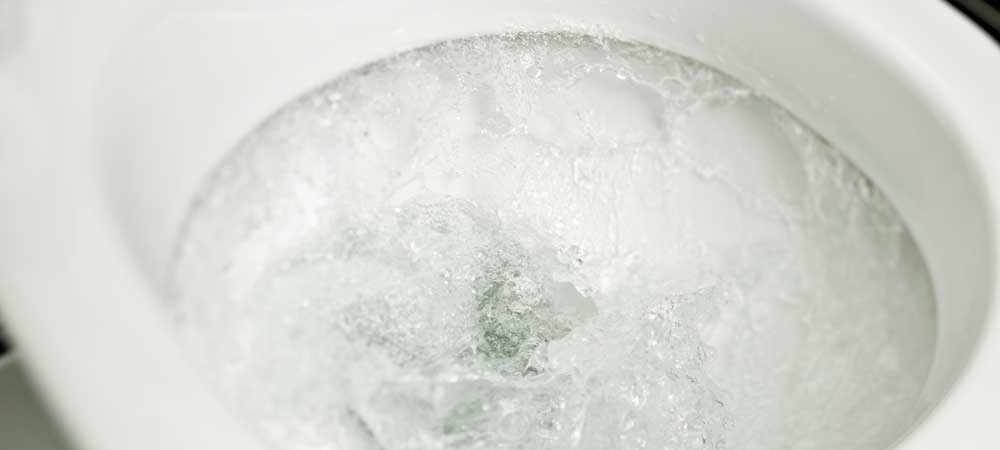10 Things You Should Never Flush Down The Toilet

Most of us aren’t concerned with what we flush down the toilet, we end up using it as waste disposal for all kinds of things. It’s only when something goes wrong that we ask; ‘what not to flush down the toilet’. If we took proactive rather than reactive steps with our drain habits, we would experience fewer problems.
Last month, a couple in Wales disrupted a whole neighborhood when they used their toilet to dispose of baby wipes and underwear. This caused a complete blockage of the drains in their street. Other consequences included an overflowing manhole on a neighboring property, which in turn caused said property a number of internal plumbing issues.
See also our article “Signs and causes of blocked drains: A Room-by-Room Guide“
So, there is obviously a whole host of materials that should not be flushed down a toilet under any circumstances. Here is our list:
Wet wipes
The first and most common thing to avoid flushing down the toilet is wet wipes. While toilet paper is designed to disintegrate when it is flushed down the toilet, wet wipes are not. When flushed, they stay in one piece, potentially causing blockages further down the pipework.
Cotton balls and paper towels
Although similar in material to toilet paper, cotton balls and paper towels do not break down when flushed, and are therefore unsuitable for flushing. Cotton products tend to build up inside pipelines. This can result in blockages and even broken pipes.
Plasters
It’s highly likely plasters won’t flush at all; they’ll just float in the toilet until you have to pick them out. That’s a task nobody wants!
Dental floss
Surprisingly, dental floss should not be flushed, either. It might disappear from your toilet, but after time it will pose an issue as it blocks sewer pipes further along. Along with hair and dust, it can quickly combine into a knotted mess that contributes to clogged drains.
Fat, oil and grease
While you may not even consider flushing these fluids down the toilet, this is a good opportunity to reiterate that pouring leftover fat, oil, and grease from cooking or even machinery down the drain is never a good idea. Although it may seem harmless (they are liquids, after all) they can congeal in sewers and form sizable blockages called ‘fatbergs’. These entities are not only disgusting, they also require a lot of work to remove.
Cat litter
Quite simply, while cat litter is a toilet for your pet, it will not flush and will block your drains. Instead, it should always be disposed of in a bin.
Medication
Water doesn’t break pills down properly so, the medication that has entered the water can cause toxic environmental effects. For the same reason, it is not recommended to flush down things like paint or cleaning products.
Diapers
Diapers don’t break down in water. Furthermore they are meant to absorb water. To make things worse, modern baby diapers are made from materials that will expand when in contact with water. So, they can lead to costly damages to your system.
Cigarette butts
In addition to causing clogs, cigarette butts are made of toxic chemicals. This is another waste item that can introduce potentially harmful chemicals into the water system and harm wildlife.
Feminine Products
Just like diapers, sanitary products are designed to absorb liquid and, in some cases, expand to several times their original size. That’s not good for your plumbing because these products can rapidly obstruct the pipes. Always dispose of feminine products in a bin.
What if these items have been flushed down the toilet?
Disposing of the above materials carefully and properly might take a little extra effort in the short term, but is definitely worthwhile for both your home and the planet.
In the event that a blockage occurs, it might not be immediately clear to property owners that there is a problem. Furthermore, if there is an issue, and it is apparent, it could still be difficult to pinpoint the exact cause or location.
Using a CCTV drain survey is one way to find the source of any drainage problems: using either a crawler or extendable rod-mounted camera, drainage professionals inspect the inside of your drains, further than would ever be possible without such technology. This is by far the most efficient way of locating drainage issues, so if you happen to have attempted flushing the above items then it’d be wise to consider a CCTV drain survey to verify the health of your drains.
Express Drainage Surveys are the leading providers of CCTV drainage surveys for customers throughout London. Using state-of-the-art inspection equipment and dedicated staff, we offer unrivalled service that ensures drainage issues are identified and resolved efficiently and safely. For more information, get in contact with us today.
